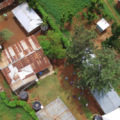Cape Town – South African businesses must take advantage of opportunities in Southern Sudan as soon as possible, with the state set to gain independence on 11 July, said Minister of Defence and Military Veterans Lindiwe Sisulu.
Briefing journalists on Tuesday, Sisulu said the drive for regional integration on the continent would remain a key focus of the government.
Sisulu, who chairs the government’s International Co-operation, Trade and Security cluster, said South African firms are already involved in the reconstruction of Southern Sudan.
While SABMiller had already built a $30 million brewery in Southern Sudan, which had been in operation for over a year, consulting engineers at KV3 are assisting in refurbishing government buildings, such as Juba Hospital.
Added to this, logistics and resource company Arelco was appointed to assist with the development of livestock in the new state, while MTN is also involved in investments in the region, said Sisulu.
She said key opportunities in the new state included agriculture, minerals and energy, infrastructure development, information technology and telecoms, water purification and supply, as well as forestry and banking.
Sisulu’s call for more SA companies to enter Southern Sudan comes as the South African government continues its assistance in the rollout of five priority trade corridors.
The trade corridors are: phase two of the Mozambique Spatial Development Initiative (SDI) programme, phase two of the Tanzania SDI, phase two of Democratic of Congo (DRC) SDI, phase one of the Angola-Namibia-South Africa SDI and phase one of the Zimbabwe SDI.
Sisulu said the Mtwara corridor in Tanzania already secured investors.
Meanwhile, the Department of Trade and Industry was still pushing ahead to secure a free trade agreement between the Southern African Development Community (SADC), the East African Community (EAC) and the Common Market for East African States (Comesa).
Minister of Trade and Industry Rob Davies said a summit between SADC, Comesa and EAC would be hosted within weeks.
He said a SADC conference, held earlier this month, to prepare for the summit had proved a very “useful and important meeting of minds” on the approach to the free-trade agreement among the three trade blocs.
“The signs are there that we can seriously move forward,” said Davies.
The conclusion of the free trade agreement will mean the promotion of a market containing 26 countries, with a combined GDP of $624 billion and a population of 700 million people.
Davies said there is growing evidence that Africa would be the next economic success story.
He pointed to a report last year by McKinsey called “Lions on the Move”, which cited the minerals boom and growing domestic demand, in particular from the middle-class, as key drivers of growth on the continent.
“When we look at our domestic market as an individual country, we are 49 million people in South Africa. We’re a small town in China, we’re not a sizeable domestic market, but when we start to look at our continent as a whole, or even if we look at sizeable parts of our continent, then we start to crack the numbers,” said Davies.
He said African countries needed to work together for opportunities on mineral beneficiation projects, adding that this would be a key point of discussion at a meeting to be held by the Council of African Ministers of Industry in Algeria in April.
The council is a newly formed initiative by the Department of Trade and Industry, which involved trade and industry ministers from Africa.
Davies said the Brazil Russia India China (Bric) conference, to be held on 14 and 15 April in Beijing, also presented an opportunity for the country, with China’s invitation late last year for South Africa to join the grouping.
The delegates from the member countries are expected to develop targets for trade between Bric countries and areas where co-operation can take place – which would involve some of the spatial development initiatives on the continent, he said.
Turning to global trade agreements under way in Geneva, Switzerland, Davies said there was a “window of opportunity” to draft a more equitable trade agreement, despite developing countries asking for more concessions in terms of industrial tariffs and maintaining farming subsidies.
Sisulu said the government had also realised the need to develop and deploy more diplomatic staff in regional, continental and global governance bodies.
“Over the next years, we will be striving to meet the geographical quota available in the UN system and meet the assessed quota available in SADC and AU,” said Sisulu, adding that the policy on seconding diplomats would be revised and that a database of possible posts and candidates that the country could deploy. – BuaNews












Speak Your Mind